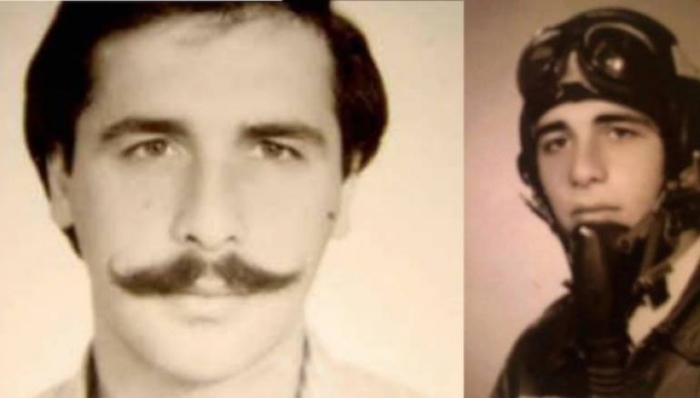A former nurse posted at Adra Central Prison, Damascus, has revealed new details about the imprisoned pilot Ragheed al-Tutari, who has remained behind bars for over 34 years.
Speaking to Zaman al Wasl, the nurse, who spoke on condition of anonymity, said he had met with Tutari in 2011 in Adra Prison when he was transferred with 300 fellow inmates from Sednaya Prison following a rebellion.
"The appearance of detainees brought to Adra Prison was miserable as some of them were limping and many used walking sticks or [were] fully paralyzed, and some of them were accused of bombing [the] American Embassy and Dawriyat branch,” he said.
The nurse mentioned that soldiers and nurses were not allowed to communicate with prisoners, but he was able to because of his job, adding that he later discovered the new prisoners were brought from Sednaya and Tadmur prisons after attempts to overthrow the facilities were thwarted.
He described conditions in the prison, claiming the hall where Tutari was detained had nothing more than walls, blankets and a mattress, but could be considered luxurious compared to conditions in Sednaya Prison.
The nurse spoke of his first meeting with Tutari: “I was trying to communicate with old prisoners to find out information about my relatives who were lost in the events [of the 1980s], therefore I was advised to communicate with “Abu Khalid”, [the] nickname of Tutari.”
“I approached him with the excuse of taking his blood pressure reading, he was not comfortable [with] me because of the military uniform, and when I told him that I was from Idleb and looking for relatives, he told me that the only people [who] stayed alive since then were only himself and another person but I forgot his name.”
According to the nurse, Tutari suffered from hypertension and diabetes and was treated with insulin. Because of his religious knowledge, Tutari was considered an encyclopedia for prisoners who consulted him in their matters.
Regarding the Adra Prison revolt of 2011, which began as a protest against the invasion of Jobar in Damascus, the nurse said that Tutari was an important figure behind it and was approached by officials to urge prisoners to end the uprising. But Tutari refused to help.
Born in Damascus in 1955, Tutari was arrested for applying for asylum at the United Nations headquarters in Cairo during a visit in 1981 after his discharge from the Syrian army. Many claim his dismissal was in response to his refusal to bomb the city of Hama during the brutal government-led crackdown in the early 1980s.
This article was edited by The Syrian Observer. Responsibility for the information and views set out in this article lies entirely with the author.


